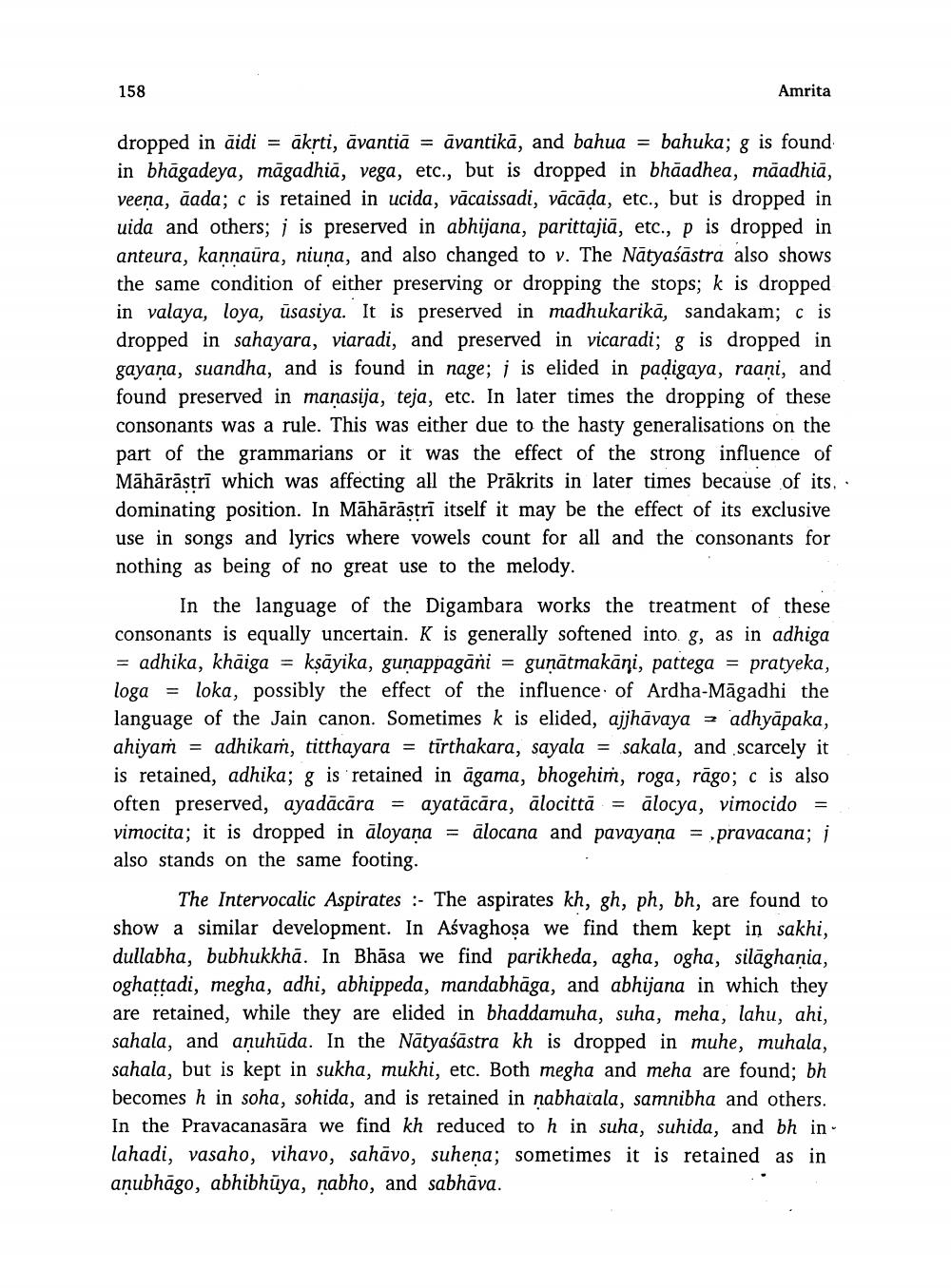________________
158
Amrita
dropped in aidi = akrti, āvantia = āvantikā, and bahua = bahuka; g is found in bhāgadeya, māgadhiā, vega, etc., but is dropped in bhāadhea, māadhiā, veena, āada; c is retained in ucida, vācaissadi, vācāda, etc., but is dropped in uida and others; i is preserved in abhijana, parittajia, etc., pis dropped in anteura, kannaūra, niuna, and also changed to v. The Natyaśāstra also shows the same condition of either preserving or dropping the stops; k is dropped in valaya, loya, ūsasiya. It is preserved in madhukarikā, sandakam; c is dropped in sahayara, viaradi, and preserved in vicaradi; g is dropped in gayana, suandha, and is found in nage; j is elided in padigaya, raani, and found preserved in manasija, teja, etc. In later times the dropping of these consonants was a rule. This was either due to the hasty generalisations on the part of the grammarians or it was the effect of the strong influence of Māhārāstrī which was affecting all the Prākrits in later times because of its - dominating position. In Māhārāstrī itself it may be the effect of its exclusive use in songs and lyrics where vowels count for all and the consonants for nothing as being of no great use to the melody.
In the language of the Digambara works the treatment of these consonants is equally uncertain. K is generally softened into g, as in adhiga = adhika, khāiga = ksāyika, gunappagāni = gunātmakāni, pattega = pratyeka, loga = loka, possibly the effect of the influence of Ardha-Māgadhi the language of the Jain canon. Sometimes k is elided, ajjhāvaya = adhyāpaka, ahiyam = adhikam, titthayara = tīrthakara, sayala = sakala, and scarcely it is retained, adhika; g is retained in āgama, bhogehim, roga, rāgo; c is also often preserved, ayadācāra = ayatācāra, ālocittā = alocya, vimocido = vimocita; it is dropped in āloyana = ālocana and pavayana = ,pravacana; i also stands on the same footing.
The Intervocalic Aspirates :- The aspirates kh, gh, ph, bh, are found to show a similar development. In Aśvaghosa we find them kept in sakhi, dullabha, bubhukkhā. In Bhāsa we find parikheda, agha, ogha, silāghania, oghattadi, megha, adhi, abhippeda, mandabhāga, and abhijana in which they are retained, while they are elided in bhaddamuha, suha, meha, lahu, ahi, sahala, and anuhūda. In the Nātyaśāstra kh is dropped in muhe, muhala, sahala, but is kept in sukha, mukhi, etc. Both megha and meha are found; bh becomes h in soha, sohida, and is retained in nabhaiala, samnibha and others. In the Pravacanasāra we find kh reduced to h in suha, suhida, and bh in lahadi, vasaho, vihavo, sahāvo, suhena; sometimes it is retained as in anubhāgo, abhibhūya, nabho, and sabhāva.




